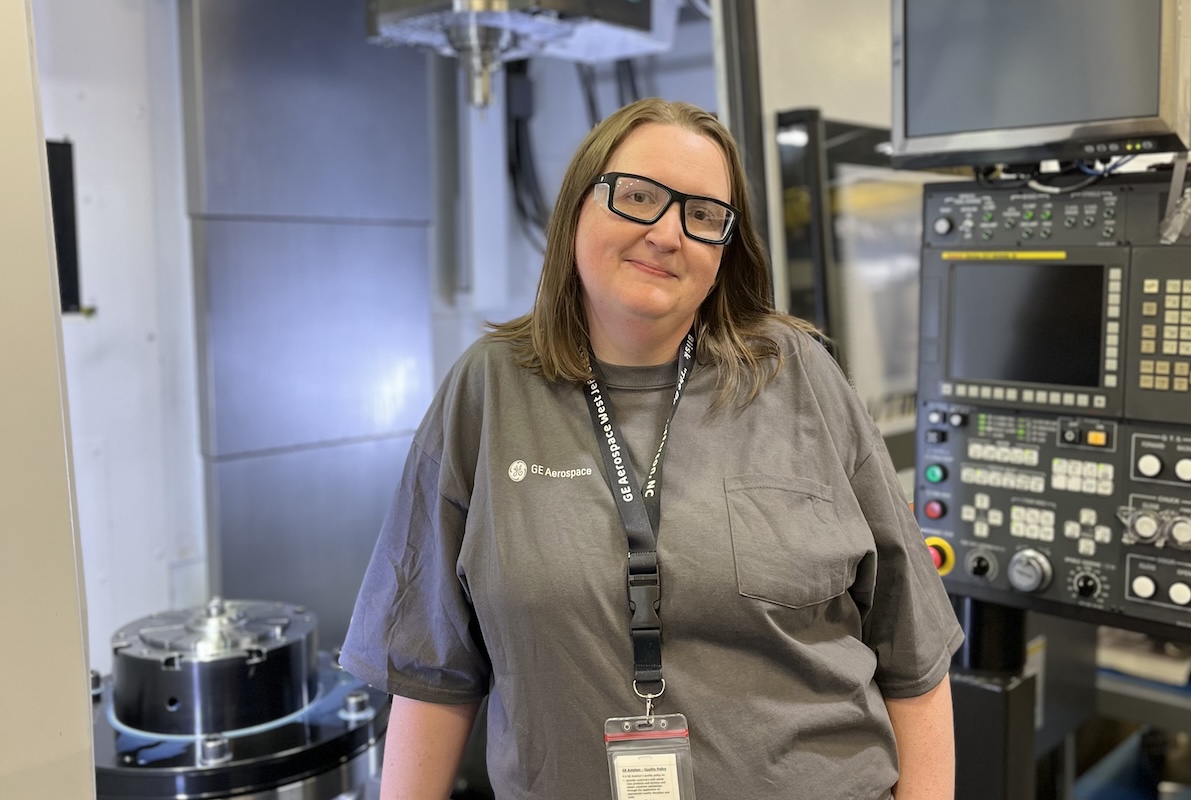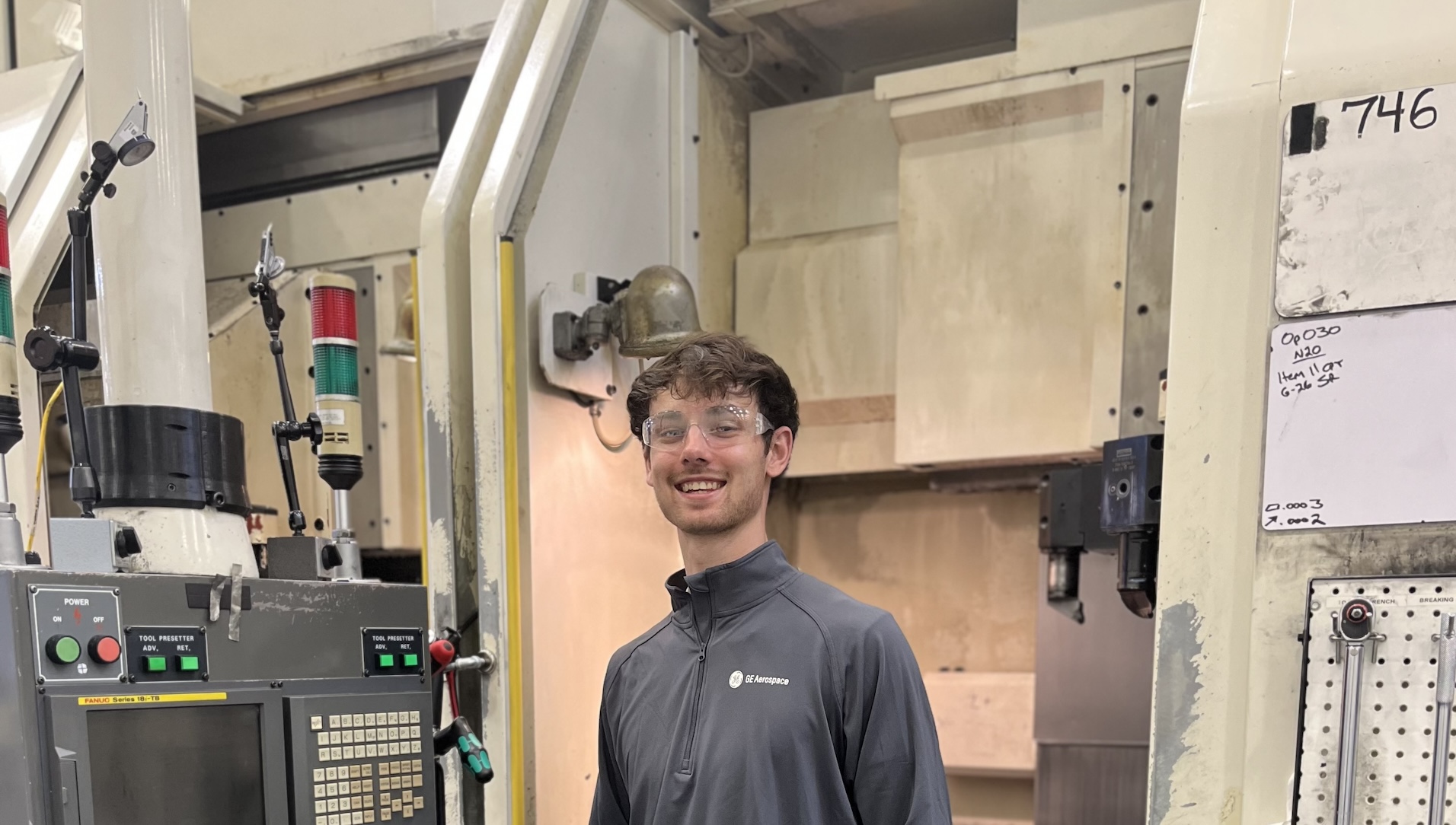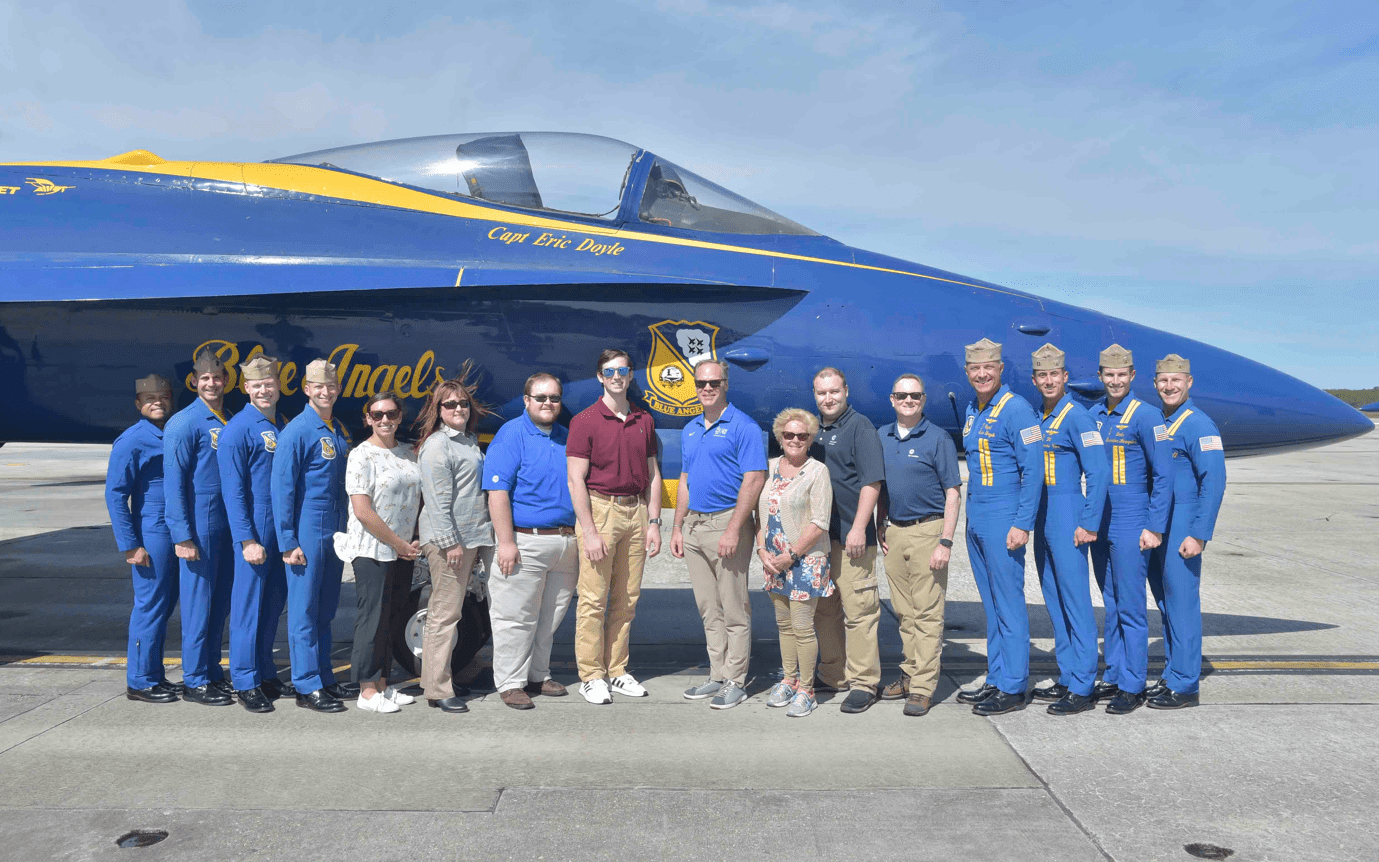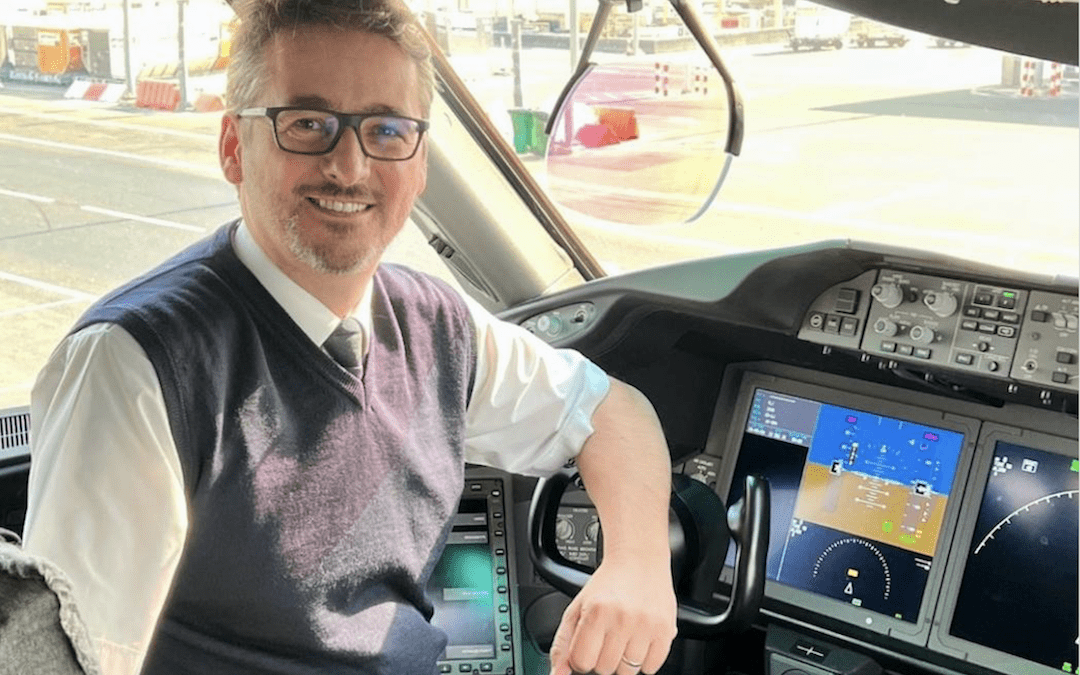Building Futures: How One Skills Program Is Bringing New People into Aerospace Manufacturing
August 4, 2025 | by Matt Lehner
In the mountains of North Carolina, the small town of West Jefferson is home to a partnership that’s changing lives and building the future of aerospace manufacturing. For the past decade, Wilkes Community College and GE Aerospace have partnered to provide residents — many with little to no advanced manufacturing experience — the skills needed to build critical components for jet engines.
This year marks the 10th anniversary of the collaboration, a milestone and model of how to build a larger skilled workforce.
The program, launched in 2014, is an intense five-week training that blends classroom learning with shop floor experience. New workers spend 200 hours gaining skills in advanced math, precision measurement (using calipers, micrometers, and other advanced devices), Fanuc and Haas computer numerical control (CNC) controllers, blueprint reading, and CNC operations. The college’s CNC lab serves as a training ground to practice skills before applying them in real-world manufacturing environments for at least half a day each week. The newest class graduated last Friday.
The program continues to evolve, incorporating feedback from graduates and adapting to the realities of the shop floor to ensure that workers are prepared for the demands of aerospace manufacturing.
For many, it’s a new adventure.
Take Heather Jackson. Jackson spent more than 20 years working in retail before joining GE Aerospace. “I thought I would be in retail for the rest of my life,” she says. Despite having no prior experience in machining or advanced manufacturing, and being a bit intimidated at first, she decided to take the leap. “Walking in on the first day, it was overwhelming,” she says. But as the weeks went on, her confidence grew. “The longer I was here, the easier it got, and my confidence grew.”

Today Jackson works on critical jet engine components like high-pressure turbine blades and spools. “It’s mind-blowing how many lives we touch with the engines we make,” she says. “There’s a real sense of accomplishment in the shop.”
Kai Christoferson’s story is another example of how the program is transforming lives. A West Jefferson native, Christoferson joined GE Aerospace after working for a right-of-way company, clearing trees and vegetation around power lines.
Though he was initially unsure if he had the skills needed to succeed in aerospace manufacturing, the program gave Christoferson the confidence to take on the challenge. “I didn’t really have any relevant experience before this job, but the extensive training you go through in the program makes sure you have what you need.”
This year, the program is expected to graduate up to 100 people and is one of several advanced skills training programs GE Aerospace has that will train around 3,000 workers in 2025.
The program has also helped GE Aerospace enlarge its workforce in the region and expand capacity to meet strong demand from customers. In 2005, the site employed just 90 people. Today that number has grown to more than 300, with plans to hire even more. GE Aerospace sees strong retention among those who complete the program.
After graduating from the program, Christoferson started as a CNC machinist and has since been promoted to a team lead. “The opportunities here are endless,” he says.
Chris Bare, an instructor at Wilkes Community College, has seen students grow throughout the program. “We’re giving people in our community the chance to learn advanced manufacturing skills that they might not have had access to otherwise,” Bare says. “It’s incredibly rewarding to see them succeed.”
The program’s success stems from the collaboration between GE Aerospace, Wilkes Community College Ashe Campus, and the State of North Carolina, with GE Aerospace covering wages and benefits for participants and NCEdge funding the training costs.
“It’s a great example of a partnership between the state and businesses,” says Ricky Roten, customized training coordinator at Wilkes Community College, who has been instrumental in shaping the program. “But it’s more than just building skills — it’s about building careers and strengthening the community.”





